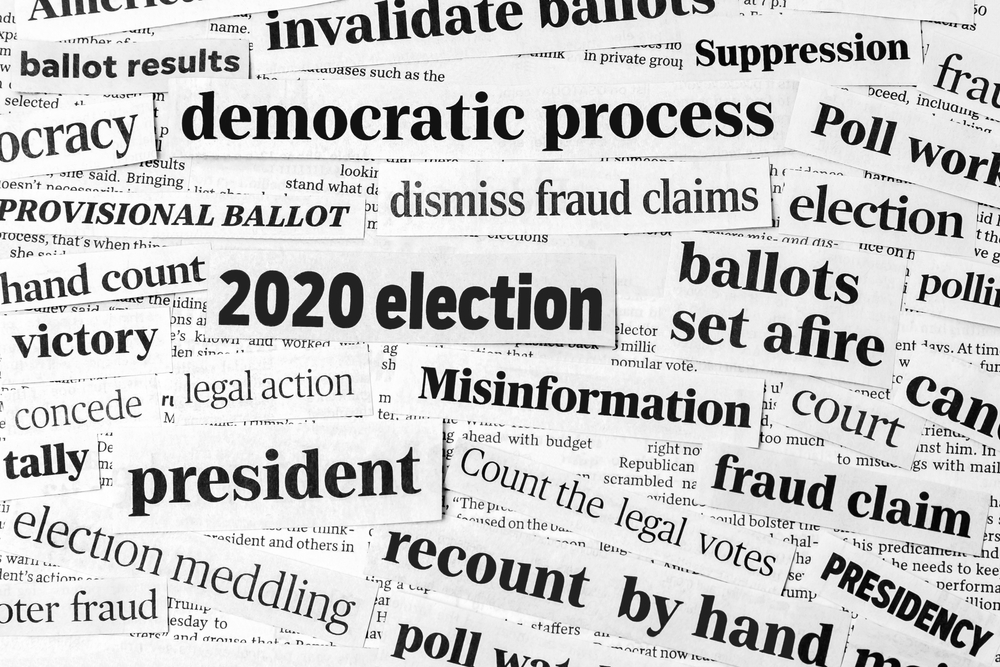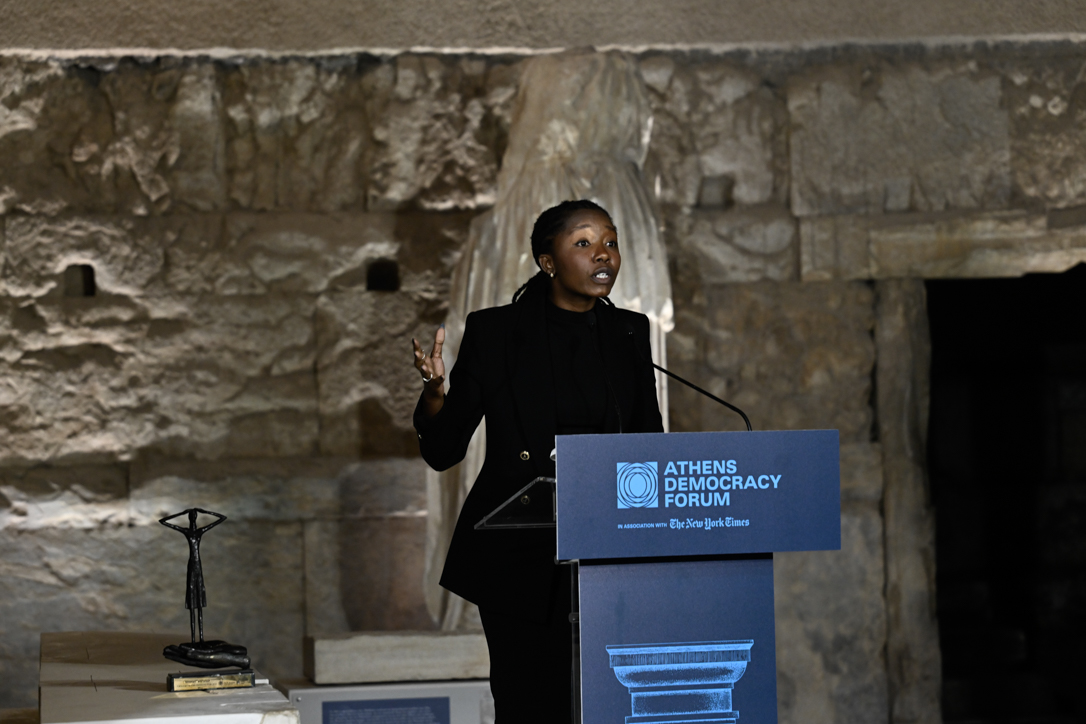The Crisis of Democracy
This speech was originally made by Kofi Annan at the 2017 Athens Democracy Forum on 13 September 2017.
Your Excellency, the President of the Hellenic Republic, Mr. Prokopios Pavlopoulos, Excellencies, ladies and gentlemen, let me start by thanking the New York Times for inviting me to this conference here in Greece, the ancient cradle of democracy. This lecture is being given in the name of Aristotle, one of the most enduring thinkers Greece, and indeed the world, has ever produced. His very name means “excellent insight”, and he certainly left us quite a few, which continue to resonate more than 2,000 years after his death. Not least is Aristotle’s recognition that “Man is, by nature, a political animal”. Man is born, lives and dies as a member of a community and the affairs of that community are therefore his and vice-versa. I am honoured to speak in his name and, as you will see, I believe many of his insights are as relevant today as they were in antiquity.
I have been a tireless defender of democracy all my life because I am convinced it is the political system most conducive to peace, sustainable development, the rule of law and the respect for human rights, the three pillars of any healthy and democratic society. As the UN Secretary General, I oversaw the creation of Democracy Day and the UN’s Democracy Fund, to support grassroots democracy around the world. I am happy to acknowledge the current head of the Fund, Annika Savill, who is here with us this evening. Since leaving the UN, I have set up the Electoral Integrity Initiative with a group of concerned organisations and individuals who seek to promote the legitimacy of elections as a fundamental pillar of democratic practice. The Kofi Annan Foundation and its partners have just held regional conferences in Latin American and Southeast Asia, which highlighted the challenges democracy faces in those regions, but also peoples’ commitment to its ideals. We have to admit that democracy is experiencing a crisis of confidence. Not only does it face increasingly assertive opponents, but growing numbers of its beneficiaries either take it for granted, or else doubt its merits. Much has been made of reports by Larry Diamond, the Economist Intelligence Unit and Freedom House that democratic freedoms have been in retreat for eleven straight years in many parts of the world, with the emergence of an increasing number of elected authoritarians.
But even in democracy’s historic heartlands, we are witnessing a shift in the perceptions and practice of democracy evidenced by ever lower levels of voter participation, falling membership of political parties and declining trust in politicians and institutions. According to Pew, less than a fifth of the American population trust their federal government to “do the right thing most of the time”. It used to be three fourths in 1958. Congress, for its part, has a 69% negative rating. This is based on the perception that democracy isn’t delivering. Governments appear powerless in the face of such challenges as the Euro crisis, the migration crisis, or the debt crisis. This has set the scene for the resurgence of populism – charismatic individuals or fake prophets promising simplistic solutions to people’s grievances through radical policies that dismiss institutions and laws as either irrelevant or inconvenient. What are the factors driving these challenges to democracy? I see at least three.
First, growing inequality within countries. The uneven benefits of globalisation are dividing societies into winners and losers on an unprecedented scale. Global markets are creating billionaires, whilst the incomes of the middle and working classes in developed countries have stagnated and their livelihoods are becoming ever more vulnerable to technological change and global competition. Compounding inequality, increasingly integrated financial markets have allowed globalisation’s footloose winners to park their profits in tax havens, while the tax burden on the middle class continues to rise. Aristotle himself stressed the importance of the middle class for the sustainability of democracy. When wealth is too concentrated, the polity becomes vulnerable to oligarchy. If there are too many poor, the polity can degenerate into populism, disorder and the confiscation of private property. The middle class is the backbone of a democracy and Aristotle advocated that it should always far outnumber both the poor and the rich. The threat to the middle class is therefore a threat to our political systems themselves.
Second, governments are looking increasingly powerless in the face of the imperatives of the global economy and the ever-growing web of regional and global agreements they have entered into. Here in Greece, for example, the inability of Syriza to overturn the EU’s austerity policies despite the party’s popular mandate to do so no doubt created a sense of disillusionment. I think that the management of the 2008 Great Recession has increased suspicions that democratic governments have been captured by special interests. Whilst the US government was spending trillions in bailing out the big banks, for example, millions of American families lost their homes. In Greece, there is a widespread perception that the EU prioritised the protection of the big European banks’ balance sheets over the protection of the Greek population, whose incomes fell by about a third. We are not here to debate the economic arguments of the decisions that were made, but I think the political price of those priorities was high.
Finally, there is a crisis of effectiveness. Democratic government is compared unfavourably with the concurrent success of authoritarian regimes, which seem to enjoy record rates of growth. Whilst the US government’s plans to overhaul its infrastructure have been stuck in Congress for almost a decade, China has built the Three Gorges Dam and thousands of kilometres of new railways and roads. People – especially in developing countries that are struggling to overcome poverty and low growth – look at these achievements and wonder whether democratic governance, at least in its western incarnation, really delivers. These are all real and serious problems that we cannot dismiss, lest the populists of both left and right continue to gain ground. Be that as it may, we need to put these concerns into historical perspective. The setbacks of the last decade have to be set against remarkable gains since the end of the Second World War, when there were only twelve fully-fledged democracies. Today there are 117, and elections, however flawed, have become almost universal, illustrating the power of legitimacy they offer. We should not forget that liberal democracy almost died in the 1930s, but the liberal democracies eventually defeated Nazism, Fascism and Democracy is therefore arguably the most successful political system the world has ever seen. Polls show that most people around the world aspire to more freedom, more rule of law, more accountability and more say in politics.
In short, democracy remains a universal aspiration. Why? Because it actually delivers: of the twenty countries with highest levels of human development as measured by the UN’s human development index, nineteen are liberal democracies. Among the top forty, thirty-six are liberal democracies. And even the citizens of poorer democracies live, on average, nine years longer than citizens of poor autocracies, because they have better access to health and education. Democracies are also less vulnerable to famines and conflicts. Most importantly, however, as my friend Amartya Sen has cogently argued, freedom itself is development. Subordination to the caprices of other human beings, rather than to the law, is a source of despair to the human soul. I am sceptical about the sustainability of “authoritarian growth”. In most cases, both historically and globally, those regimes become fragile when growth slows or ends, because they have no other sources of legitimacy. So rather than looking for alternatives to liberal democracy, we should instead seek to reform our systems through concrete measures in at least three areas.
First, we need to make our democracies more effective. Much of the debate in our democracies turns on the politics of redistribution and public spending, but not enough on effectiveness. We are trying to solve today’s problems with yesterday’s solutions. We must harness new technologies and management techniques to overhaul the administration of the state to make our democracies less bureaucratic and more responsive to families and individuals, especially those who cannot afford high-priced lawyers and lobbyists.
Second, we need to tackle inequality, both economic and political. As I have said, increasing inequality is one of the drivers of resentment, especially since economic equality leads to political inequalities as well, as several studies have confirmed. There is a growing perception that the priorities of the extremely wealthy take precedence over the well-being of the middle class thanks to campaign contributions and lobbying. At the other end of the spectrum, the poor and minorities are, or at least feel, excluded from the political system. Governments must respond by redistributing fairly the benefits of globalisation by restricting tax avoidance and evasion schemes, and most importantly, discouraging tax havens. Fortunately, democracy is one of the only systems in which the concerns of the majority can overturn the interests of the wealthy if the majority harnesses the mechanisms at their disposal. But this demands more participation, not less. This means that we need to make our democracies more inclusive. This requires bold and innovative reforms to bring in the young, the poor and minorities into the political system. An interesting idea put forward by one of your speakers this week, Mr. Reybrouk, would be to reintroduce the ancient Greek practice of selecting parliaments by lot instead of election. In other words, parliamentarians would no longer be nominated by political parties, but chosen at random for a limited term, in the way many jury systems work. This would prevent the formation of self-serving and self-perpetuating political classes disconnected from their electorates.
Third and finally, we need to champion democracy. The victory over Nazism, fascism and communism were also ideological struggles that were won on the battlefield of ideas as well. Yet many of the tools of that battle have been abandoned or are underfunded today. Democracy’s enemies are spending billions to undermine it, both in practice and through misinformation. In a world of “alternative facts”, who do we believe? We know that armies of state-financed trolls are creating “AstroTurf movements” to sow the seeds of mistrust and disunity to weaken our democracies. We must not let them win by abdication. Democracies have to reclaim the lost ground by defending and promoting liberal ideas, just as they did against democracy’s past ideological enemies. Athenian democracy illustrates that practice never meets the ideal – women could not vote and slavery was common practice. Moreover, ancient Athenian democracy was sometimes hijacked by oligarchies, reminding us that democracy is vulnerable. We should remember that democracy is always a work in progress. But a system created thousands of years ago continues to inspire democrats throughout the world today. We must cherish, reform and defend democracy, or else it may be lost for future generations. As another great democrat who drew inspiration from ancient Athens, Thomas Jefferson, put it, “the price of liberty is eternal vigilance.”



